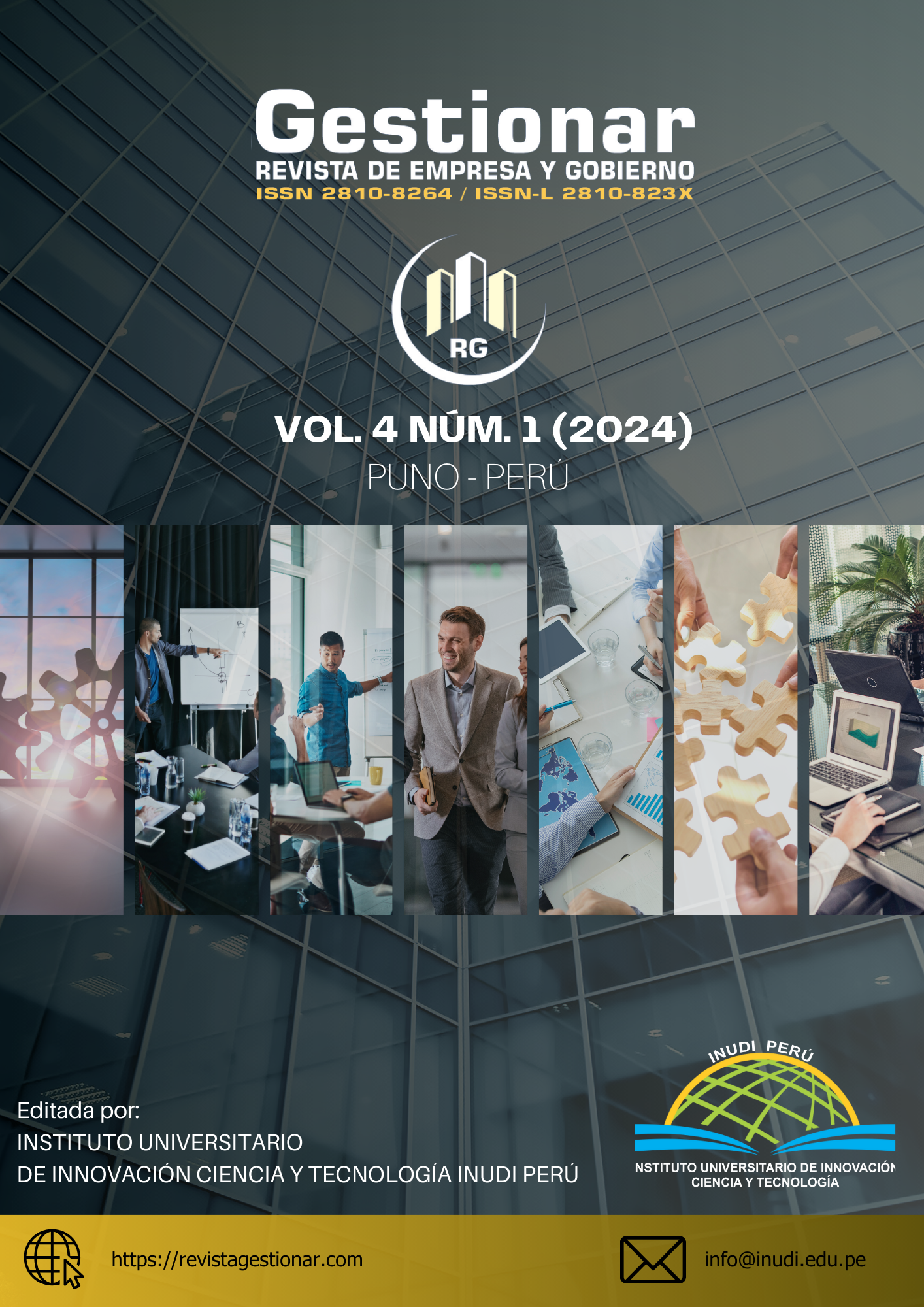Development and post-development paradigms: towards a comprehensive and sustainable approach
DOI:
https://doi.org/10.35622/j.rg.2024.01.002Keywords:
good living, quality of life, development, human development, post-developmentAbstract
In this essay, a thorough analysis of development and post-development paradigms was carried out, focusing primarily on highlighting the importance of human development, well-being, quality of life, and "good living" as fundamental elements. It was argued that development should not be limited to mere economic expansion but should prioritize human progress in critical areas such as education, health, and gender equality. Additionally, the concept of "Good Living" was integrally incorporated as an essential component for understanding and promoting a holistic approach to development, recognizing the interconnection between social, economic, and environmental dimensions. Proposed as a central axis, a detailed analysis of the paradigms is sought, emphasizing the importance of human development. In summary, cultural diversity, strategic adaptation, and balance between human well-being and environmental preservation are emphasized to achieve inclusive and sustainable development, in line with the fundamental principles of Good Living.
References
Arnstein, S. R. (1969). A ladder of citizen participation. Journal of the American Institute of Planners, 35(4),216-224. https://doi.org/10.1080/01944366908977225 DOI: https://doi.org/10.1080/01944366908977225
Banco Mundial. (2019). World development report 2019: The changing nature of work. World Bank Group. https://cutt.ly/aw1fMTPP
Naciones Unidas. (1987). Informe de la Comisión Mundial sobre el Medio Ambiente y el Desarrollo: Nuestro futuro común. https://cutt.ly/2w1f4S09
Cubillo-Guevara, A.P., Hidalgo-Capitán, A.L., García-Álvarez, S. (2016). El Buen Vivir como alternativa al desarrollo para América Latina. Iberoamerican Journal of Development Studies, 5(2):30-57. DOI: https://doi.org/10.26754/ojs_ried/ijds.184
Diener, E., Chan, M. Y., & Lucas, R. E. (2010). Happiness and pain in modern life: Effects on well-being. In E. Diener & J. Helliwell (Eds.) Handbook of social indicators and quality of life research (pp. 331-359). Springer. https://pubmed.ncbi.nlm.nih.gov/25802959/
Dornbusch, R. (1992). The case for trade liberalization in developing countries. Journal of Economic Perspectives, 6(1), 69-85. https://doi.org/10.1257/jep.6.1.69 DOI: https://doi.org/10.1257/jep.6.1.69
Escobar, A. (1995). Encountering development: The making and unmaking of the Third World. Princeton University Press. https://www.jstor.org/stable/j.ctt7rtgw
Escobar, A. (1998). La invención del Tercer Mundo: construcción y deconstrucción del desarrollo. Icaria.
Escobar, A. (2015). Degrowth, postdevelopment, and transitions: A preliminary conversation. Sustainability science, 10, 451-462. https://doi.org/ 10.1007/s11625-015-0297-5 DOI: https://doi.org/10.1007/s11625-015-0297-5
Escobar, A. (2018). Designs for the pluriverse: radical interdependence, autonomy, and the making of worlds. Duke University Press. DOI: https://doi.org/10.1215/9780822371816
Esteva, G. (2011). Más allá del desarrollo: la buena vida. Revista Española de Desarrollo y Cooperación, 28, 1-6. http://hdl.handle.net/10644/2802
Gudynas, E. (2011a). Buen Vivir: Today’s tomorrow. Development, 54(4), 441-447. https://doi.org/10.1057/dev.2011.86 DOI: https://doi.org/10.1057/dev.2011.86
Gudynas, E. (2011b). Buen Vivir: Germinando alternativas al desarrollo. América Latina en Movimiento, 464. 1-20. https://dhls.hegoa.ehu.eus/documents/5665
Gudynas, E. (2011c). Diez tesis urgentes sobre el Buen Vivir. In Consejo Latinoamericano de Ciencias Sociales (Ed.), Estado de la situación (pp. 187-225).
Acosta, A. (2014) El buen vivir, más allá del desarrollo. In G. C. Delgado (Ed), Buena Vida, Buen Vivir: imaginarios alternativos para el bien común de la humanidad (pp. 21-60). Universidad Nacional Autónoma de México
Harvey, D. (2005). A Brief History of Neoliberalism. Oxford University Press. https://doi.org/10.1093/oso/9780199283262.001.0001 DOI: https://doi.org/10.1093/oso/9780199283262.001.0001
Hooker Blandford, A. (2017). El papel de la comunicación en procesos de interculturalidad. URACCAN al día, 11(2), 14-17. https://revistas.uraccan.edu.ni/index.php/uraccanaldia/article/view/414
Huanacuni Mamani, F. (2010). Buen Vivir / Vivir Bien: Filosofía, políticas, estrategias y experiencias regionales andinas (1th ed.). Coordinadora Andina de Organizaciones Indígenas. https://dhls.hegoa.ehu.eus/documents/5182
Parmesan C., Morecroft M. D. &Trisurat Y. (2022). Climate Change 2022: Impacts, Adaptation and Vulnerability. [Research Report]. https://hal.science/hal-03774939
Latouche, S. (2009). Pequeño tratado del decrecimiento sereno. Icaria Editorial.
Leff, E. (2006). Aventuras de la epistemología ambiental. Siglo XXI Editores.
Acosta, A. (2011). El buen (con) vivir, una utopía por (re) construir: alcances de la Constitución de Montecristi. OBETS. Revista de Ciencias Sociales, 6(1), 35-67. https://doi.org/10.14198/OBETS2011.6.1.03 DOI: https://doi.org/10.14198/OBETS2011.6.1.03
Naciones Unidas. (2015). Declaración Universal de los Derechos Humanos. Asamblea General de las Naciones Unidas. https://cutt.ly/tw1f9j0J
Organización Mundial de la Salud (2018). Health 2020: A European policy framework for the 21st century. https://cutt.ly/7w1fnNfm
Programa de las Naciones Unidas para el Desarrollo (2020). Human Development Report 2020: The next frontier: Human development and the Anthropocene. https://hdr.undp.org/en/content/human-development-report-2020
Esteva, G. (1992). Development. En W. Sachs (Eds), The development dictionary a guide to knowledge as power (pp. 6–52). Zed Books.
Sauca Cano, J. M., & Wences Simon, M. I. (2009). Participación ciudadana y diversidad cultural: la Comisión Bouchard-Taylor. Andamios, 5(10), 9-37. https://www.redalyc.org/articulo.oa?id=62811391002 DOI: https://doi.org/10.29092/uacm.v5i10.167
Sen, A. (1999). Development as Freedom. Oxford. Oxford University Press
Stiglitz, J. E. (2002). Globalization and its discontents. Economic Notes, 32(1), 123-142. https://doi.org/10.1046/j.0391-5026.2003.00107.x DOI: https://doi.org/10.1046/j.0391-5026.2003.00107.x
Stiglitz, J. E., Sen, A., & Fitoussi, J. P. (2009). Report by the Commission on the Measurement of Economic Performance and Social Progress. Commission on the Measurement of Economic Performance and Social Progress. https://cutt.ly/lw1fAQKG
United Nations Educational, Scientific and Cultural Organization. (2017). Education for Sustainable Development Goals: Learning Objectives. https://cutt.ly/Aw1fNsNL.
United Nations Environment Programme. (2019). Global Environmental Outlook – GEO-6: Healthy Planet, Healthy People. Cambridge University Press. https://wedocs.unep.org/20.500.11822/27539 DOI: https://doi.org/10.1017/9781108627146
Published
Issue
Section
License
Copyright (c) 2024 Leonardo López, Jorge Escalante (Autor/a)

This work is licensed under a Creative Commons Attribution 4.0 International License.
LOS AUTORES RETIENEN SUS DERECHOS:
- Los autores retienen sus derechos de marca y patente, y tambien sobre cualquier proceso o procedimiento descrito en el artículo.
- Los autores retienen el derecho de compartir, copiar, distribuir, ejecutar y comunicar públicamente el artículo publicado en Gestionar: revista de empresa y gobierno (por ejemplo, colocarlo en un repositorio institucional o publicarlo en un libro), con un reconocimiento de su publicación inicial.
- Los autores retienen el derecho a hacer una posterior publicación de su trabajo, de utilizar el artículo o cualquier parte de aquel (por ejemplo: una compilación de sus trabajos, notas para conferencias, tesis, o para un libro), siempre que indiquen la fuente de publicación (autores del trabajo, revista, volumen, número y fecha).





















